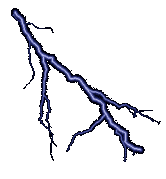


"In electracy, one does not critique media; one uses media to perform critique: critique and performance become symbiotic."

Electracy as
Apparatus

Gregory Ulmer

Participatory
Culture
We have already seen the shift from orality to literacy--with chirography, the enitre apparatus (social machine that influences law and conventions) shifted. Literacy didn't replace orality, but it shifted the apparatus. We are in another one of those "epochal moments" with the changes toward digital media.
By thinking of electracy in a similar way to literacy, we can begin to see ELECTRACY as a WAY OF LIFE rather than a set of skills. "Electracy is already buzzing all around us" (Ulmer) and therefore, electracy "creates a need for new theories about writing, reading, and thinking: about subjectivity, community, and representation..." (Arroyo 8).
literacy : alphabetic writing
-------------------
electracy :
digital media

Gregory L. Ulmer is the theorist responsible for the concept of electracy and he began exploring the electrate apparatus over three decades ago. He was first interested in video and worked with the latest technology available at the time (VHS) in Teletheory (1989) and he moved toward hypertext and electracy in the 1990s.
Despite the common misconception:
Rather, electracy is based on both electricity and trace in a Derridean sense. As explained by Ulmer, trace is a rupture in metaphysics, a pattern of incongruities where the metaphysical rubs up against the non-metaphysical" (6). With regards to electracy: "an engagement with the electric, or onlin, world necessarily leaves "traces" of participation, and these traces, when juxtaposed, make up the electrate experience" (Arroyo 7)
In order to explore these concepts of electracy and videocy, Ulmer introduced the POPCYCLE, which was a heuristic for creating the Mystory and for discovering seemingly disparate and aleatory events from all aspects of life that can be connected and networked together for great inventional potential.
ELECTRACY IS NOT ELECTRONIC LITERACY
All of these online habits promote the idea of a paricipatory culture and demonstrate the imbrication of social behavior in everything that we do online. Participatory Culture should involve an ECOLOGICAL approach, "thinking about the interrelationships among different communication technologies, the cultural communities that grow up around them, and the activities they support" (Jenkins et al in Arroyo 9).
According to Arroyo, "PARTICPATORY CULTURE, as a networked site for learning, allows us to reenvision the image of learning: from skills in which individduals demonstrate the competency to the act of creating, sharing, and developing complex networks around a given concept" (9).
Twitter, YouTube, Facebook, and other social media sites are often lamented for their celebration of narcissism, however, these sort of sites operate on the exact opposite premise of Narcissus. Don't forget--Narcissus was only concerned with only his own reflection, he had no concern outside of himself or with the number of likes, retweets, or subscribers.
NETWORKS
PATTERNS
CONNECTIONS

Embed. Share. Comment. Like. Subscribe. Upload. Check in.
Video Gallery on Electracy and Videocy
While these videos are by no means indicative of all that is out there on this topic, I thought that these were the right ones to start with. The first video is Greg Ulmer discussing electracy in his own words and it is an excerpt from the "Ulmer Tapes" of 2004. The second video is by Sarah Arroyo and it is an exploration of the concept of Ulmer's PopCycle. The third video is the "Idiocy of Videocy" and was created by Arroyo's graduate student--it is a fascinating look at the ethical and behavioral practices of online video. The fourth video is Greg Ulmer's "Textshop" and it is an explanation of electracy as well as a Call for Projects. The fifth video is an updated version of Arroyo's "Growing up with Electracy" that appears on the home page. And the final video is an old clip of Ulmer's "Mister Mentality" as mentioned in the book.
